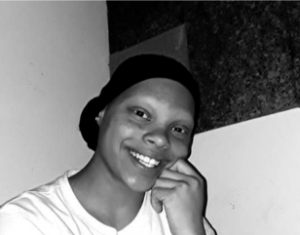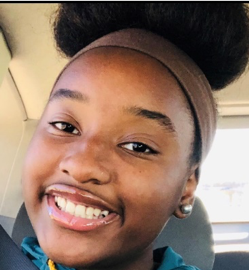Free Minds Free People 2019 will feature two plenaries—as well as three assemblies, and a direct action—all of which are times and spaces for large groups to come together and learn more about the joyful fight for our lives. More information about the theme and confirmed speakers for Friday and Saturday is below.
Friday Morning Plenary: School-to-Prison Nexus and Abolitionist Teaching (9:45am to noon, in the Ted Mann Concert Hall)
Abolitionist teaching demands moving from school-to-prison pipeline to school-to-prison nexus. The plenary centers adopting abolitionist teaching praxis. Education activists and scholars have shifted our language to recognize the ways in which schools function as prisons, as opposed to pipelines to prisons. Furthermore, more attention has been put on the ways in which technologies influence and mediate the relationships between surveillance, punishment, and incarceration. These carceral conditions, however, can be ruptured. Until schools reflect the liberatory spaces we dream and imagine, we must seek out transformative practices that disrupt the nexus between schools and prisons.
The plenary seeks to explore the 21st century context of U.S. schooling, transformative educational pedagogies, and examples of work being done within and outside of traditional school spaces to disrupt the oppressive conditions of schooling while also reimagining new and more liberatory spaces for us to “do more than survive.”
Friday speakers include:
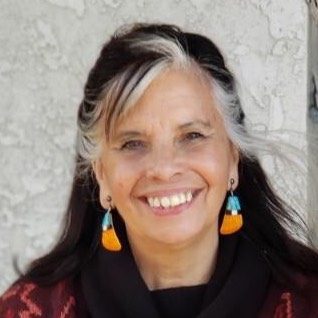
Ms. Stephanie Autumn brings extensive experience in developing, implementing, and evaluating programs in Indian country. A member of the Hopi Tribe, Ms. Autumn has 38 years of local, national, and international AI advocacy and policy work experience, and has presented at various Human Rights forums at the United Nations in Geneva, Switzerland and in New York. She has worked throughout the country on issues of American Indian adult and juvenile justice, substance abuse prevention, restorative justice, and tribal youth mentoring programs. Ms. Autumn served as the Executive Directive of the Minnesota Restorative Justice Campaign for five years and is a skilled Restorative Practitioner facilitator, trainer, and Circle Keeper. Ms. Autumn’s expertise includes developing culturally competent strategic planning tools and trainings for American Indian/Alaska Native tribes. She has directed national projects on American Indian juvenile domestic assault, restorative justice, pre-and post-release services for AI youth and adult offenders, tribal mentoring, and truancy. She recently served as project director for three Department of Justice funded programs for tribal youth which provided Training and Technical Assistance to over 135 tribal grantees.
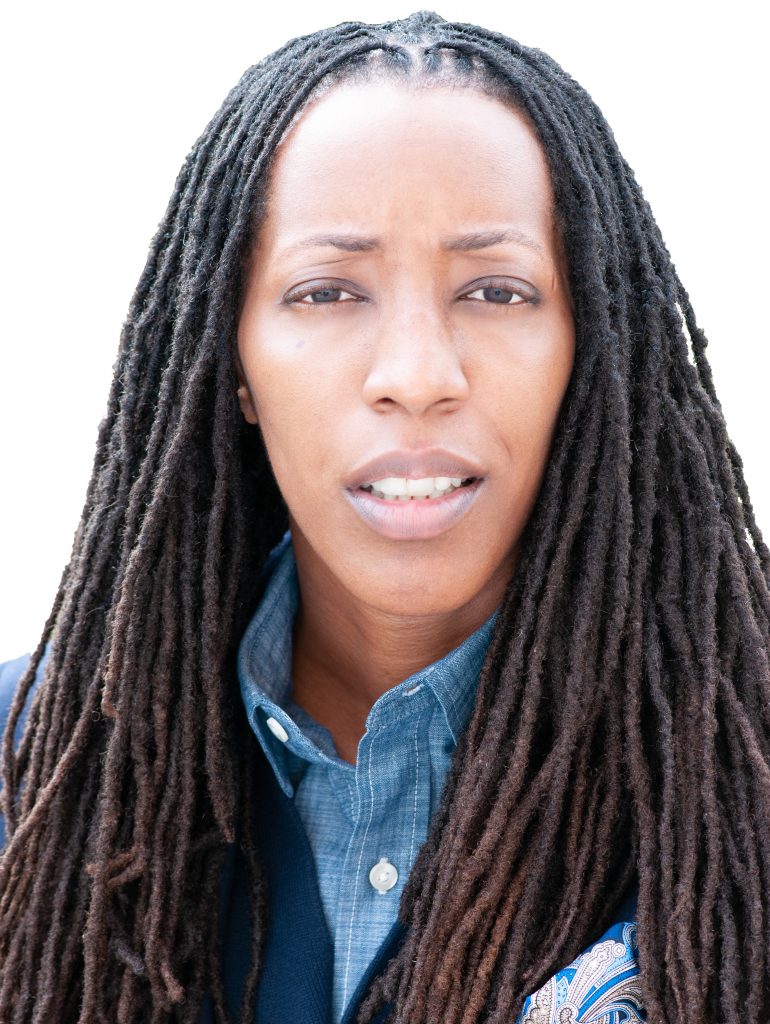
Dr. Bettina L. Love is an award-winning author and Associate Professor of Educational Theory & Practice at the University of Georgia. She is one of the field’s most esteemed educational researchers in the areas of Hip Hop education and urban education. Her work is also concerned with how teachers and schools working with parents and communities can build communal, civically engaged schools rooted in intersectional social justice for the goal of equitable classrooms. In 2016, Dr. Love was named the Nasir Jones Hiphop Fellow at the Hutchins Center for African and African American Research at Harvard University. She is also the creator of the Hip Hop civics curriculum GET FREE. In April of 2017, Dr. Love participated in a one-on-one public lecture with bell hooks focused on the liberatory education practices of Black and Brown children. In 2018, Georgia’s House of Representatives presented Dr. Love with a resolution for her impact on the field of education. She is the author of the books We Want To Do More Than Survive: Abolitionist Teaching and the Pursuit of Educational Freedom and Hip Hop’s Li’l Sistas Speak: Negotiating Hip Hop Identities and Politics in the New South. Her work has appeared in numerous books and journals..
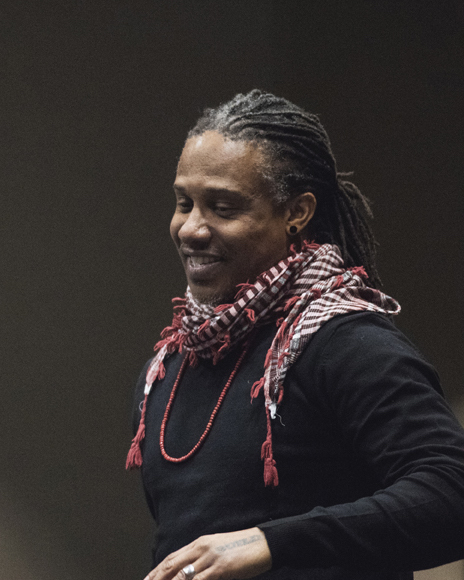
David Stovall, Ph.D. is Professor of African-American Studies and Criminology, Law & Justice at the University of Illinois at Chicago (UIC). His scholarship investigates three areas 1) Critical Race Theory, 2) the relationship between housing and education, and 3) the intersection of race, place and school. In the attempt to bring theory to action, he works with community organizations and schools to develop curriculum that address issues of equity and justice. His work led him to become a member of the design team for the Greater Lawndale/Little Village School for Social Justice (SOJO), which opened in the Fall of 2005. Furthering his work with communities, students, and teachers, his work manifests itself in his involvement with the Peoples Education Movement, a collection of classroom teachers, community members, students and university professors in Chicago, Los Angeles and the San Francisco Bay Area who engage in collaborative community projects centered in creating relevant curriculum. In addition to his duties and responsibilities as a professor at UIC, he also served as a volunteer social studies teacher at the Greater Lawndale/Little Village School for Social Justice from 2005-2018.
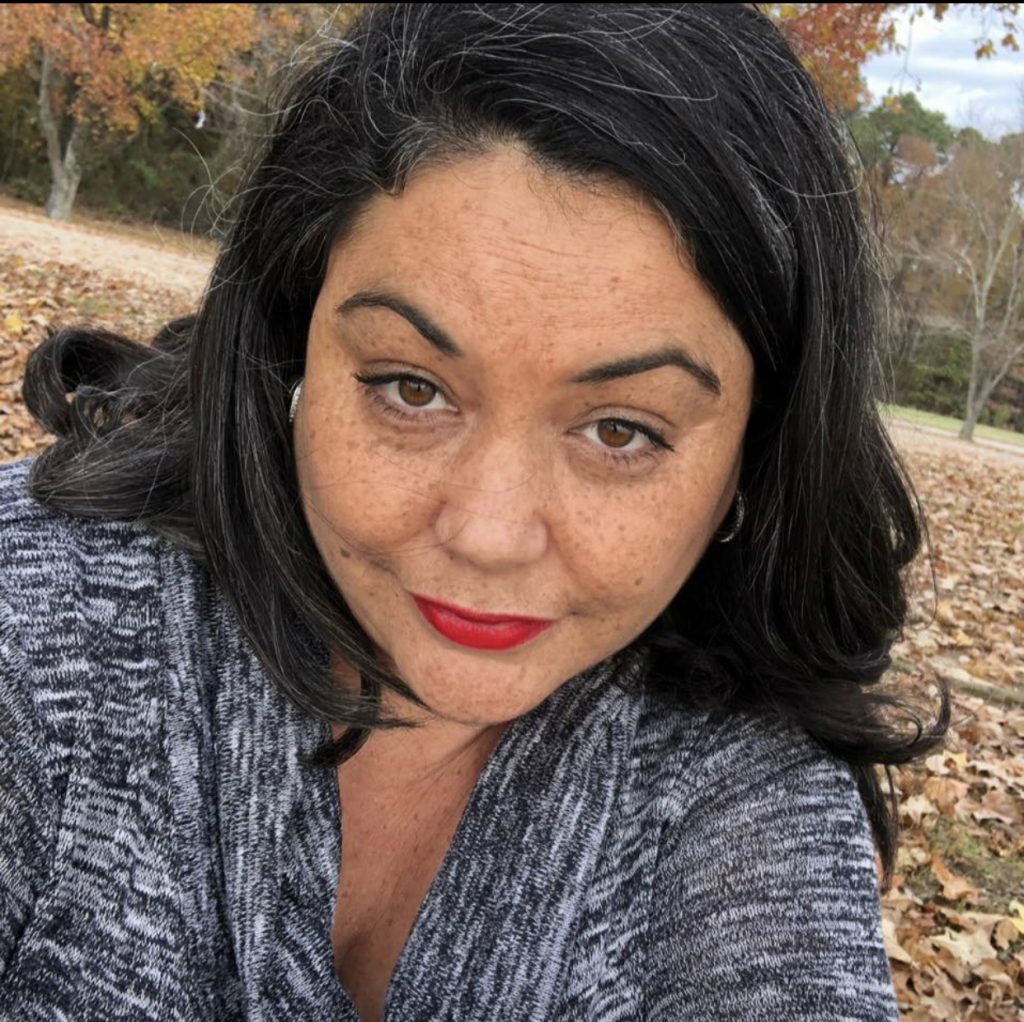
Marika Pfefferkorn is an interdisciplinary and cross sector leader in k-16 education, community vitality, Entrepreneurship, Innovation and Technology. She is a change agent and disruptor working to transform systems and improve outcomes for Black youth, families and communities of color. In 2018 she co-founded the Twin Cities Innovation Alliance (TCIA) and Midwest Center for School Transformation (MCST). Ms. Pfefferkorn brings a policy, research and practice lens to dismantling the school to prison pipeline, eliminating discipline disparities at federal, state and local levels. She is a member of the national Dignity in Schools Campaign leadership committee and has Co-chaired the Minnesota Solutions Not Suspensions Coalition and leads the Neighborhood Leadership Program (NLP) in St. Paul at the Wilder Foundation. Most recently she co-founded the Coalition to Stop the Cradle to Prison Algorithm (CPA Coalition) in response to an emerging technological trend in education and juvenile justice. She combines the work of community organizing and advocacy to facilitate community-centered solutions that reflect the interests of youth, families, and communities of color and marginalized communities.
Kelese Marshall is a founding member of Empowered To Be Me girls leadership program. Kelese serves as the Curriculum Coordinator, she is committed to ensuring girls see themselves in curriculum and activities that empower them to become their best selves. Kelese enjoys volleyball, sign language, fitness and reading.
Nia-Imani Tolefree is a founding member of Empowered To Be Me girls leadership program. Nia serves as the Community Engagement Coordinator and enjoys planning community engagement events to empower girls to be integral part of transforming their communities. Nia also enjoys volleyball, track, art, music, and dance.
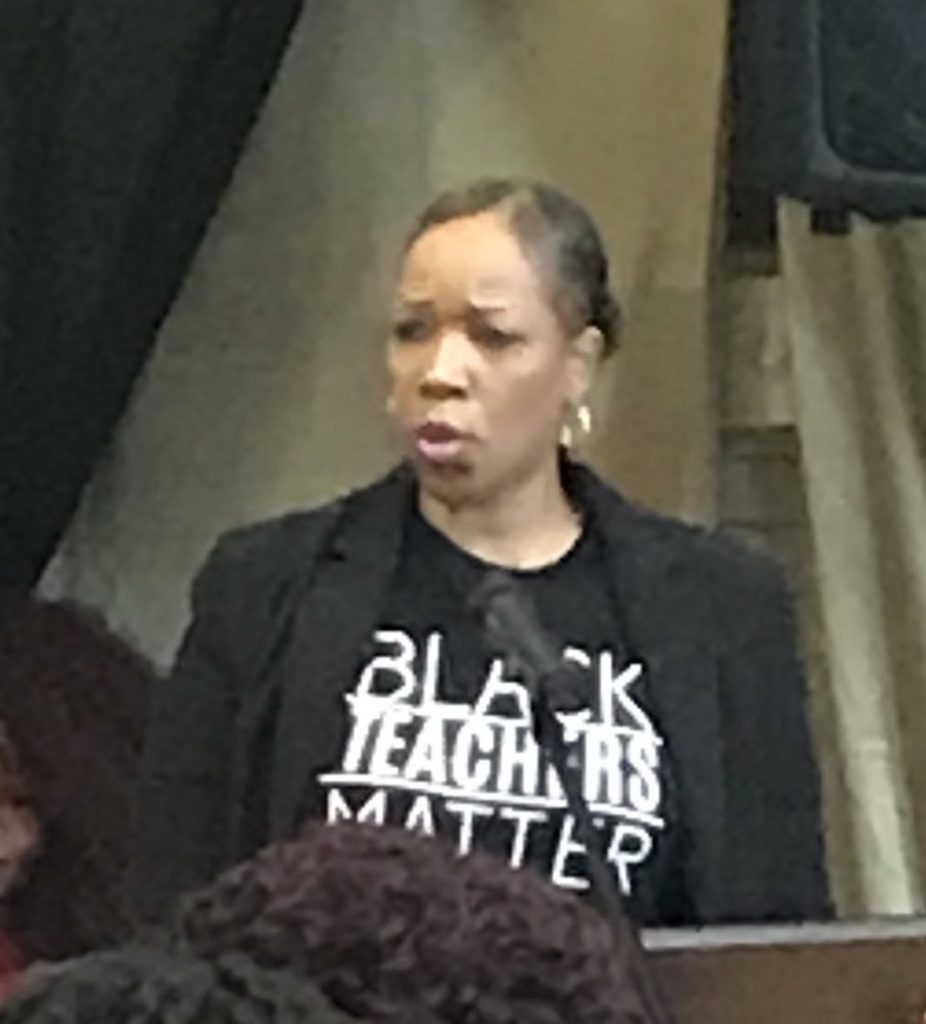
Moderator: Awo Okaikor Melvinia Aryee-Price is the second daughter of the late Melvinia Rose Holland (1999), and Nii Ayikuma Aryee. She is mom to Saige Ayikailey (12) and Kaeden Nii-Ayikundzra (8), and partner to Keith. As a former classroom teacher of 14 + years, you can find her organizing within national and state educational justice organizing spaces and communities. Okaikor is currently a doctoral candidate at Rutgers University Graduate School of Education—exploring the experiences of Black educators organizing for racial and social justice in their schools or communities. She is also a co-founder of MapSO Freedom School, and a steering committee member for EduColor and the National Black Lives Matter at School Week of Action.
Saturday Plenary: Afro-Futurism, Futures and the Radical Imaginary (9:30am to 11am, in the Ted Mann Concert Hall)
There is a deep relationality among then, now, and futures. In this 50th year since 1969 of Black, Brown struggles for decolonized education and freedom, the resistance for a new order continues. This plenary focuses on the Afro-futurist imaginary as well as concrete practices to make manifest our vision. Afro-futurism is a liberatory and imaginative landscape by which we build the world we want. Our radical imagination is iterative possibility of what can be. Our futures inhabit joy, care, connection, love. Systems of violence, militarism, materialism, misogyny are radically transformed. We are self-determining, healed and free.
This plenary focuses on Afro-futurism simultaneously looking back while facing forward—the Sankofa of our struggles. This means articulating praxis—theory and practice—of our liberation. This praxis is concrete and strategic. It is also visionary. It requires collective care and accountability within our social movement organizing and critical education. It is an intergenerational journey, one of hope and healing. The plenary draws out vision and possibility through on the ground work and the radical imaginary of Afro-futurism.
Saturday speakers include:
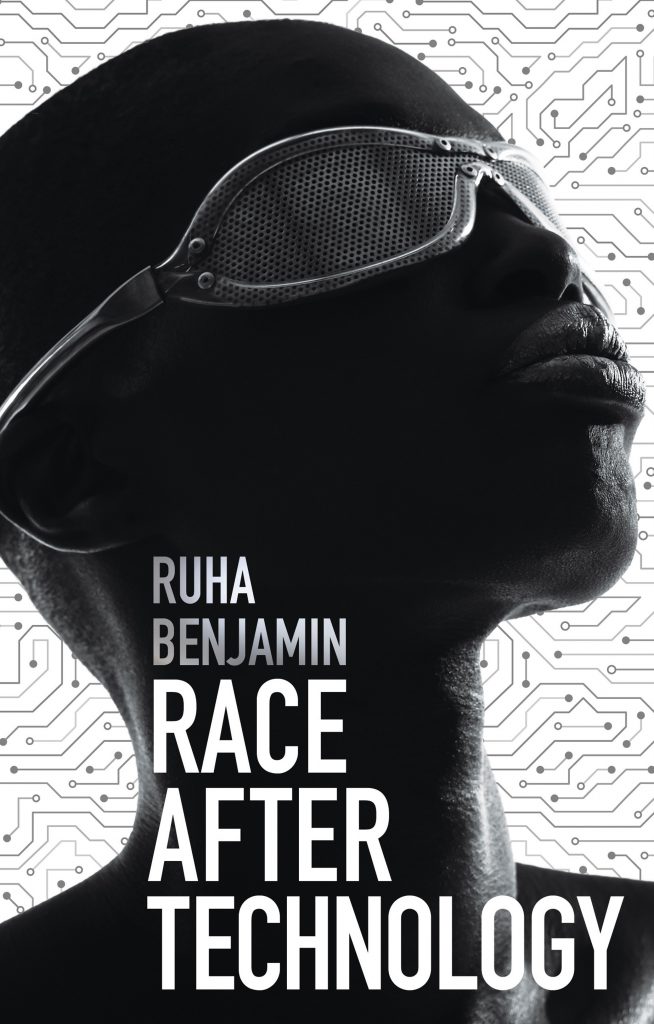
Dr. Ruha Benjamin is associate professor of African American studies at Princeton University. Her work examines the relationship between knowledge and power, science and citizenship, health and justice. She is also the founder of the JUST DATA Lab and author of two books, People’s Science (2013) and Race after Technology: Abolitionist Tools for the New Jim Code (2019), and editor of Captivating Technology: Race, Carceral Technoscience, and Liberatory Imagination in Everyday Life (2019). For more info visit, ruhabenjamin.com.
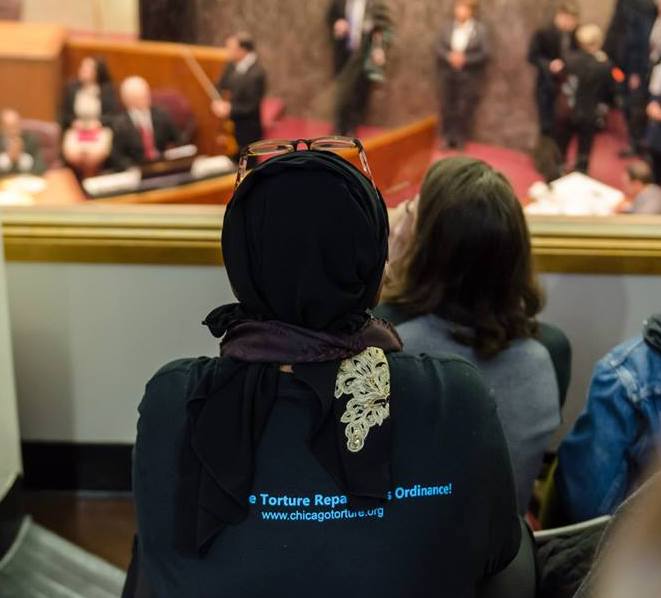
Mariame Kaba is an organizer, educator and curator who is active in movements for racial, gender, and transformative justice. She is the founder and director of Project NIA, a grassroots organization with a vision to end youth incarceration. She has co-founded multiple organizations and projects over the years including We Charge Genocide, the Chicago Freedom School, the Chicago Taskforce on Violence against Girls and Young Women, Love & Protect and most recently Survived & Punished. As a Researcher in Residence, Mariame Kaba works with Andrea J. Ritchie, fellow Researcher in Residence, on a new Social Justice Institute (SJI) initiative, Interrupting Criminalization: Research in Action. Mariame is on the advisory boards of the Chicago Torture Justice Memorials, Critical Resistance and the Chicago Community Bond Fund. Her writing has appeared in numerous publications including The Nation Magazine, The Guardian, The Washington Post, In These Times, Teen Vogue, The New Inquiry and more. She runs Prison Culture blog. Mariame’s work has been recognized with several honors and awards.
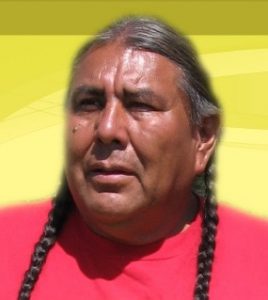 Tom Goldtooth is the executive director of the Indigenous Environmental Network. Tom has been awarded with recognition of his achievements throughout the past 37 years as an activist for social change within the Indigenous and environmental and climate justice movements. From the strength of his community organizing and leadership experience he has brought the local issues of environmental, economic, energy, climate, water and food justice and the rights of Indigenous peoples to the national and international levels. Tom is a recipient of the 2015 Gandhi Award and in 2016 presented Sierra Club’s the John Muir award.
Tom Goldtooth is the executive director of the Indigenous Environmental Network. Tom has been awarded with recognition of his achievements throughout the past 37 years as an activist for social change within the Indigenous and environmental and climate justice movements. From the strength of his community organizing and leadership experience he has brought the local issues of environmental, economic, energy, climate, water and food justice and the rights of Indigenous peoples to the national and international levels. Tom is a recipient of the 2015 Gandhi Award and in 2016 presented Sierra Club’s the John Muir award.
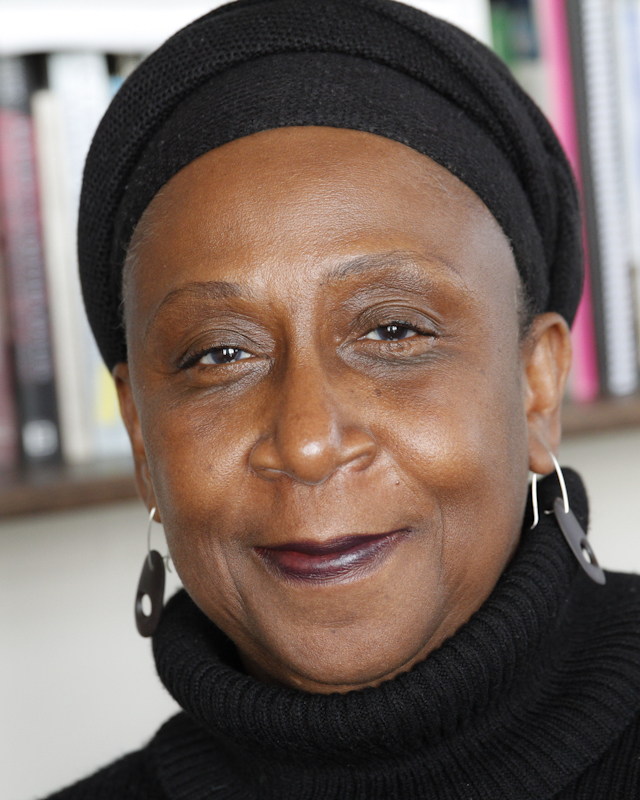
Moderator: Dr. Rose M. Brewer is an activist scholar and The Morse Alumni Distinguished Teaching Professor and past chairperson of the Department of African American & African Studies, University of Minnesota-Twin Cities. Brewer publishes extensively on Black feminism, political economy, social movements, race, class, gender and social change. Her books include The Color of Wealth, the 2019 co-edited volume Rod Bush: Lessons from a Black Radical Scholar on Liberation, Love, and Justice, The U.S. Social Forum: Perspectives of a Movement, Is Academic Feminism Dead? and several other co-edited volumes. She’s published numerous essays, book chapters, and refereed journal articles. Her current book project examines the impact of late capitalism on Black life in the U.S. She is a member of the Academy of Distinguished Teachers at the University of Minnesota and is a recipient of the American Sociological Association’s Distinguished Teaching award.
Saturday Youth Plenary: Ethnic Studies Now! Use Your Voice to Get What Students Need (9:30am to 11am, in Blegen 5)
 Learn about St. Paul’s Student Engagement and Advancement Board’s work over the last five years to advocate for more inclusive schools, practices, policies, and for Ethnic Studies. We will share why we think ethnic studies is required to make school more meaningful, real and inclusive. We hope you will be inspired by our story and share your own. With all of our expertise in one room, we will work to create instructions and inspiration for young people around the country to take action, use their voice, and advance education for liberation.
Learn about St. Paul’s Student Engagement and Advancement Board’s work over the last five years to advocate for more inclusive schools, practices, policies, and for Ethnic Studies. We will share why we think ethnic studies is required to make school more meaningful, real and inclusive. We hope you will be inspired by our story and share your own. With all of our expertise in one room, we will work to create instructions and inspiration for young people around the country to take action, use their voice, and advance education for liberation.
